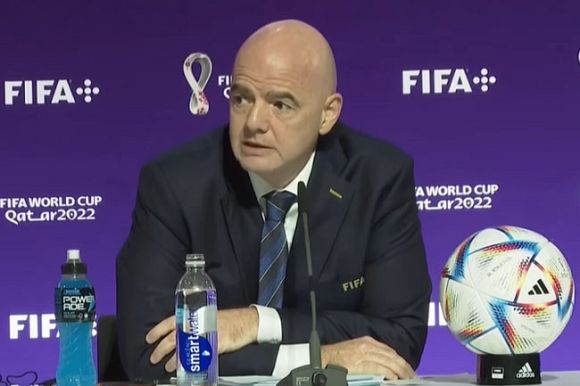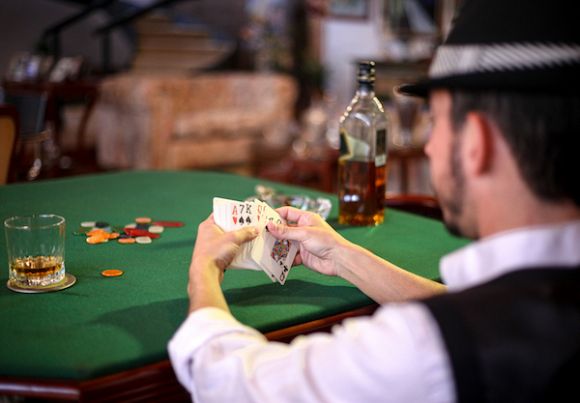Australia has attempted to export the sport of rugby league to U.S. soil, a move that failed to win over American audiences. Dr Binoy Kampmark explains why the venture failed.
THE HISTORY OF such experiments is not promising. Why would those in the U.S. like the game of rugby league, when an established code of superficial similarity already exists?
Fundamental differences, for one thing, abound. The U.S. NFL Super Bowl tries to keep blood and violence off the pitch. Force, when exercised, is chivalric, the moves ceremonially packaged. Such contests are astonishingly contained, hemmed in by a distinct netting of protocol and protections. These U.S. padded gladiators remain calm, composed and, when irate, kept within the confines of expected conduct.
Rugby league extols speed, the violent tackle, the brutish push, the military assault. Heads are often confused for balls. Punches fly and tempers fray. Unlike the NFL, the Australian NRL (National Rugby League) offers up a thuggish spectacle: combatants with no padding, unhelmeted heads and no visible protective gear to speak of.
Undeterred, the NRL mandarins were hoping to nab a U.S. audience by opening the season in Las Vegas — a move that has been promoted with aggressive enthusiasm by Australian Rugby League Commission chairman Peter V’landys. This is all a bit rich, given that the code has barely made it, even after a century, beyond the states of New South Wales and Queensland.
The chairman’s reasoning for pursuing the Vegas dream is not just the glitz, the glamour or the lucrative market that supposedly awaits. It’s intended as a blow against other Australian sporting codes trying to move into the U.S. market. The Australian Football League, for instance, has borne the brunt of V’landys’ mockery.
V'landys states:
“Because they don’t have the right-sized field in Las Vegas, the AFL couldn’t do it.”
Like Christopher Columbus, he envisages a viral conquest:
“Ironically, if we’re successful, it will open up for all sports in Australia. If we get tens of millions of dollars of new revenues, I don’t care if they also chase it. Good luck to them.”
In such ventures, the players are not necessarily the best equipped to respond. But respond to this experiment, they did. “That’s what the NRL are trying to right? Bring this game to America,” said that green salad wonder and, it so happens, Manly captain Daly Cherry-Evans. “I was pretty hopeful this was going to be the turnout.”
Well and good, but wait for what follows: “It’s great to see all the Australians here.” Given that Cherry-Evans took a little trip out of Australia to promote a game for those who are not Australians, the captain seems to come across as nobly thick and hopeful.
He added:
“They’re obviously promoting it just as much as we as players. If we can spark the interest of the Americans, that’s the job done.”
For whom, pray?
Illusion in Las Vegas has a celestial pull. Its crown glistens, defies time, rejects reality. You go there to lose it and much else.
It produces such gurgling wishful thinking as that of the Brisbane Broncos captain Adam Reynolds:
“It’s unbelievable, it’s got a bit of the grand final feel about it with all the build-up.”
Hardly, but Reynolds has hit a vein of self-assurance:
“There’s a lot of Broncos fans here, you could definitely feel the atmosphere when they mentioned our names. It’s exciting to just get out there and start playing.”
Was Reynolds confusing the fanbase with Australians who had made it to the event? Probably.
Hollywood star Russell Crowe, who is also part owner of the South Sydney Rabbitohs, has been roped in to advertise the game to NFL traditionalists. His message to them, posted as a YouTube video, is a valiant if not overly convincing effort to explain the rules: “Rugby league is footfall — but maybe not as you know it.” For one thing, there are “no helmets, no pads”.
A broader, less noble motivation is also at play here. In Australia, gambling advertising and promotion have been anathematised by politicians and activists, despite the fact that 73 per cent of Australian adults like a punt. Best, then, to consider such options as the U.S., where the wagering industry is burgeoning.
Dreams are being entertained about partnering with a dedicated sports wagering provider, which will be able to purchase the broadcast rights for customers wishing to bet on rugby league. The game, argues V’landys, is a perfect fit “because it has so many exotic bets”. But to suggest that U.S. punters will wager on a sport they do not understand over baseball and basketball, which take place during the NRL season, is to wander in the realms of fantasy.
Australian journalists, eager to take the pulse of American reactions, were on the ground to gauge responses to the first rugby league displays at Allegiant Stadium. The task was complicated by the sheer number of Australian fans.
One Robert “Bojo” Ackah, a Nevada native, was taken by how “fast” and “hard-hitting” the game was:
“I feel like these guys are really a bit out of their mind, but at the same time these guys are very athletic and skilled.”
An unnamed Las Vegas Raiders fan observed: “These guys make the NFL look soft.” Sheer music to the ear of any eager Australian sports scribbler.
On the other hand, a stiff corrective was offered by former Australian cricketer Colin Miller, who has been a resident of Las Vegas for two decades. Despite the slushy, optimistic courage in Australian press and media outlets claiming a monumental advertising campaign in Nevada and other parts of the U.S., Miller was left cold.
Came the dampening remark:
“I have not seen much publicity for the rugby games."
The U.S. has found, much to its cost and others, that exporting its own political system does not work. The principle applies to certain sports uniquely grown in soils of certain flavour and environments of certain temper.
The Australians should have learned that certain codes rarely take root in the stubborn terrain of such countries as the United States. This has also worked in reverse. Markets established are often markets impervious and tradition will have its powerful say.
Dr Binoy Kampmark was a Cambridge Scholar and is a lecturer at RMIT University. You can follow Dr Kampmark on Twitter @BKampmark.
Related Articles
 This work is licensed under a Creative Commons Attribution-NonCommercial-NoDerivs 3.0 Australia License
This work is licensed under a Creative Commons Attribution-NonCommercial-NoDerivs 3.0 Australia License
Support independent journalism Subscribe to IA.














